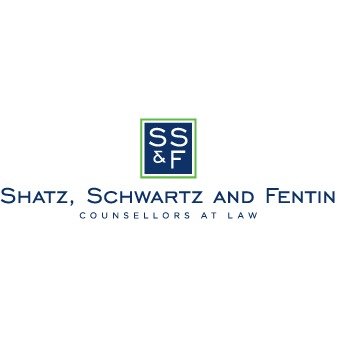Best Commercial Real Estate Lawyers in Massachusetts
Share your needs with us, get contacted by law firms.
Free. Takes 2 min.
Free Guide to Hiring a Real Estate Lawyer
Or refine your search by selecting a city:
List of the best lawyers in Massachusetts, United States
About Commercial Real Estate Law in Massachusetts, United States
Commercial Real Estate Law in Massachusetts encompasses the legal and regulatory framework that governs the buying, selling, leasing, development, and management of properties used for business purposes. This includes office buildings, retail spaces, industrial complexes, warehouses, and multi-use properties. Massachusetts has a diverse commercial real estate market influenced by its strong economy and urban centers such as Boston, Worcester, and Springfield. The legal considerations in this state are shaped by both state and local laws, which can affect everything from property acquisition to ongoing operations and eventual sale or redevelopment.
Why You May Need a Lawyer
Engaging a commercial real estate lawyer is critical due to the complexity and high value of commercial property transactions. Here are some common situations when legal help is essential:
- Reviewing and negotiating purchase agreements or leases to ensure your interests are protected
- Handling due diligence, including title searches, zoning compliance, and environmental assessments
- Assisting with complex financing arrangements, including mortgages and investor agreements
- Resolving disputes involving tenants, landlords, partners, or neighboring properties
- Navigating permitting, land use, and zoning issues for new developments or property changes
- Guiding you through foreclosures, short sales, or distressed property acquisitions
- Helping with compliance related to historic districts, environmental regulations, or accessibility laws
- Drafting or reviewing legal documents such as easements, covenants, and restrictions
A lawyer can help identify potential legal pitfalls and address them before they become costly problems.
Local Laws Overview
Several key aspects of Massachusetts law make the commercial real estate landscape unique:
- Zoning Laws - Governed at the local level, zoning regulations determine land use, building heights, density, and parking requirements. Each municipality may have its own zoning ordinances.
- Environmental Compliance - The Massachusetts Department of Environmental Protection enforces environmental standards, particularly related to hazardous waste, wetlands, and site contamination. The Massachusetts Contingency Plan (MCP) regulates cleanup of contaminated properties.
- Title and Recording - Massachusetts has a dual system for recording property ownership: the Registry of Deeds and the Land Court registration (Torrens system), both of which provide public records of property interests.
- Pain and Suffering Damages Cap - If a legal dispute arises, there may be restrictions on certain types of damages, depending on the claim and applicable statutes.
- Commercial Leases - Unlike residential leases, commercial leases in Massachusetts are less regulated, allowing for significant negotiation and customization; however, certain statutory requirements must still be met.
- Transfer Taxes (Deeds Excise) - The sale of commercial real estate typically triggers a state excise tax, which is generally paid by the seller and based on the sale price.
- Historic and Environmental Districts - Properties located in historic or environmentally sensitive zones may require additional permitting and oversight.
Understanding these local requirements is essential for a successful commercial real estate transaction or project.
Frequently Asked Questions
What is considered commercial real estate in Massachusetts?
Commercial real estate includes properties used primarily for business purposes, such as office buildings, shopping centers, industrial facilities, warehouses, and mixed-use developments.
What should I look for in a commercial real estate lease?
Key provisions to review include rent amount, lease duration, renewal options, permitted use, repair obligations, common area maintenance costs, insurance requirements, and termination clauses.
Are environmental assessments required for commercial property purchases?
While not always legally required, environmental assessments (sometimes called Phase I or Phase II Site Assessments) are highly recommended and sometimes required by lenders to identify potential contamination issues.
What is the Torrens land registration system in Massachusetts?
The Torrens system, managed by the Land Court, provides state-guaranteed and court-confirmed property titles. It is an alternative to standard recordation through the Registry of Deeds and offers strong protection against title disputes.
How does zoning affect my commercial property?
Zoning laws dictate how you can use your property, including types of permitted businesses, building heights, signage, parking, and more. Non-compliance can result in fines or denial of business permits.
Do commercial real estate transactions in Massachusetts include excise taxes?
Yes, a deeds excise tax is imposed on the transfer of real property, typically paid by the seller based on the sale price of the property.
Can I sublease my commercial space?
Whether you can sublease depends on the terms of your lease agreement. Some leases prohibit subleasing, while others allow it with the landlord’s consent.
What happens if there is a dispute during a commercial property sale?
Disputes may be resolved through negotiation, mediation, arbitration, or litigation. A lawyer can help you understand your rights and work toward the best resolution.
Do I need a lawyer to buy or sell commercial property in Massachusetts?
While not legally required, engaging a lawyer is highly advised due to the complexity, legal risks, and high value associated with commercial property transactions.
How long does a typical commercial real estate transaction take?
A typical transaction can take anywhere from a few weeks to several months, depending on property type, financing, due diligence, title issues, and other factors.
Additional Resources
If you need more information or want to connect with relevant agencies, consider these resources:
- Massachusetts Registry of Deeds - For property records, title searches, and recording documents
- Massachusetts Land Court - For Torrens registered property and title dispute information
- Massachusetts Department of Environmental Protection (MassDEP) - For environmental compliance and site assessments
- Massachusetts Association of Realtors - For industry guidance and local market information
- Greater Boston Real Estate Board - For education and professional resources
- Municipal building and zoning departments - For local zoning, permitting, and business requirements
Next Steps
If you are considering buying, selling, leasing, or developing commercial real estate in Massachusetts, take the following steps to protect your interests:
- Gather all relevant documents, including property records, current leases, title reports, and financial statements
- Identify your objectives and concerns, such as timeline, use restrictions, and budget
- Research local zoning, permitting, and environmental requirements for your intended use
- Consult with a Massachusetts commercial real estate lawyer with experience in similar transactions
- Request an initial consultation to discuss your situation, review proposed deals, and identify potential legal risks
- Ask your lawyer for a proposed action plan, including timeframes and estimated costs
- Communicate openly with your legal and real estate professionals throughout the process to ensure successful outcomes
By working with qualified professionals and staying informed about local laws, you can navigate Massachusetts commercial real estate with confidence.
Lawzana helps you find the best lawyers and law firms in Massachusetts through a curated and pre-screened list of qualified legal professionals. Our platform offers rankings and detailed profiles of attorneys and law firms, allowing you to compare based on practice areas, including Commercial Real Estate, experience, and client feedback.
Each profile includes a description of the firm's areas of practice, client reviews, team members and partners, year of establishment, spoken languages, office locations, contact information, social media presence, and any published articles or resources. Most firms on our platform speak English and are experienced in both local and international legal matters.
Get a quote from top-rated law firms in Massachusetts, United States — quickly, securely, and without unnecessary hassle.
Disclaimer:
The information provided on this page is for general informational purposes only and does not constitute legal advice. While we strive to ensure the accuracy and relevance of the content, legal information may change over time, and interpretations of the law can vary. You should always consult with a qualified legal professional for advice specific to your situation.
We disclaim all liability for actions taken or not taken based on the content of this page. If you believe any information is incorrect or outdated, please contact us, and we will review and update it where appropriate.
Browse commercial real estate law firms by city in Massachusetts
Refine your search by selecting a city.












